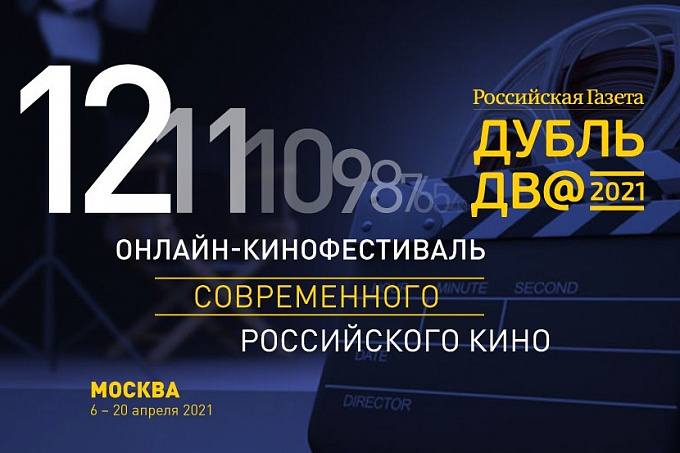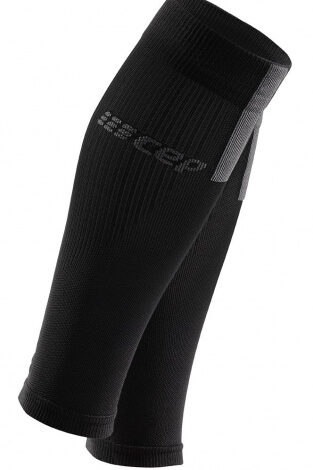Good health with a young man or a depressed personality and a broken nervous system – what does a big sport bring young children? Mir24.tv learned from professionals.
“In the three years, no one is preparing champions”: at what age can you give a child to sports?
The world continues to closely monitor the Winter Olympics in Beijing, until the end of which only a few days remain. Most of the current Olympians came to the sport completely young: for example, the Russian skater Kamila Valieva, for whom all of Russia is now suffering and worried, stood on skates when she was only three and a half years old, and only a year later she began to engage in figured skiing, her coach – Eteri Tutberidze, who raised more than a dozen champions. Many parents give children to sports still very small: for example, you can learn to swim already at infants, children come to rhythmic gymnastics at 3-4 years old, and experts count the best age for athletics for seven years. However, there are many opponents of such an approach, who believe that amateur, and even more professional sport can harm the imminent children's body. About when it is best to give the child to the sports section, what kinds of sports at what age is to master and whether there are especially “dangerous” for children, MIR24.TV was told by experts.
Sport as a physical education and as a profession: what's the difference?
Children's psychologist, neuropsychologist Kira Makarova He believes that sports and any motor activity are vital for the child, but calls for distinguishing an amateur level from professional.
“Movement, sports games, excitement – all this is the element of the child. The younger the child, the more he moves, the more he is all interested in. Therefore, from the point of view of child psychology, there are no contradictions between the child and sports. But it is important to distinguish simply sport from sports that become a profession. The age of the child who comes to sports should, of course, be consistent with the coach. Much depends on the sport, on loads, on team or individual work in each form, ”the psychologist says.
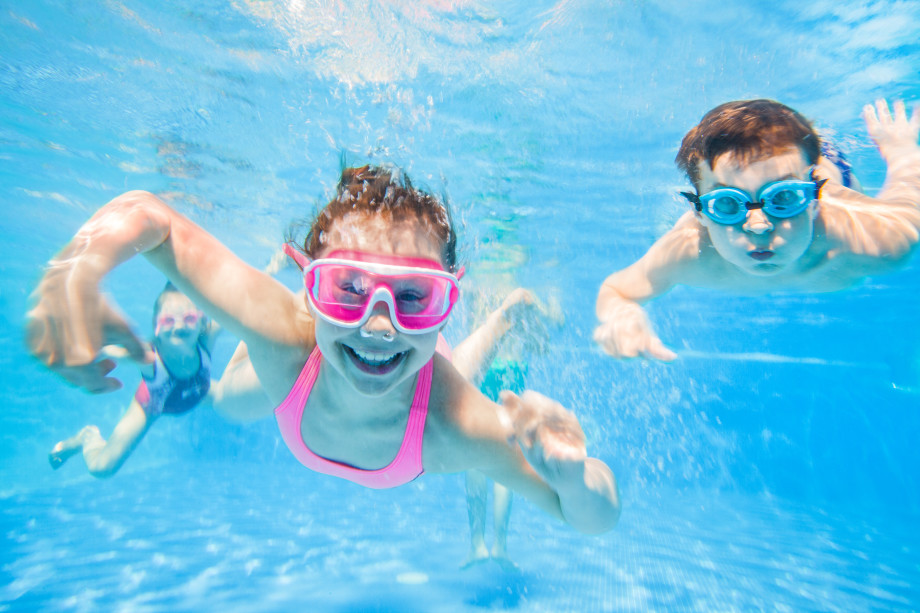
SHUTTERSTOCK/FOTODOM
Sports are organization, will, this work and load, the expert emphasizes. “Therefore, giving the child to sports, it is important to consider not only the age factor, but also individual physical and personal characteristics. Physical data are extremely important (coaches will be appreciated), but the temperament of a child who cannot be changed is also important. Not everyone gets a fighter for medals, not every person is capable of difficult conditions for the fight in sports, so parents must definitely observe the child and sensibly evaluate his capabilities in sports. Nevertheless, mental health and the ability to choose in life what a person is really capable of is the most important guides of success.You can’t break a person, you can’t mold him into something at the behest of a coach or a parent, if there are no abilities for sports, ”the specialist notes.
For those parents who nevertheless decided to “sculpt” an athlete out of their child (if he has the desire and ability), Makarova advises immediately contact a child psychologist who will observe the child and, if necessary, help him cope with difficulties at the beginning of the journey.
“Observation and assistance of a child psychologist should become mandatory concomitant conditions for the start of sports activities. And the point here is not so much in age, but in personality and health potential, ”says Kira Makarova.
Olga Martynova – specialist in physical culture and sports, instructor of group programs, as well as a nutritionist and mother of a young athlete. She admits that she has always been drawn to sports, despite the fact that the family did not show much support in this direction.
“I myself went in for sports not professionally, my parents were not interested in my sports career, but already in childhood and adolescence I noted for myself that playing sports disciplines, filters the environment that is nearby,” says Olga. – At the university (I studied at the Faculty of Physical Education), I had the opportunity to go with an escort to the camp, to the south. Accompanied by me was a group of ordinary children (not athletes), but another group went with us – skiers. Once again, I was convinced of the discipline. Children who were “non-athletes” had a hard time enduring separation from their parents, it was hard to make contact, they did not show initiative.”
When Olga had a daughter, she, without a moment's hesitation, began to introduce the girl to sports – and the results were not long in coming. “For myself, I decided: my child will go in for sports. In the process of studying age-related physiology and sports medicine, these beliefs have only strengthened. When my daughter was born, I initially wanted to give her to judo, but the open ductus arteriosus determined the choice in favor of swimming. We took up swimming at the age of four, thanks to this sport, immunity was strengthened, the arterial duct was closed. And the sports results were not long in coming,” says Martynova.
At the same time, she also notes that the most important thing is that sports bring pleasure and joy to the child. Of course, you cannot do without difficulties and worries, and sometimes you just want to take it and leave everything. But Olga urges not to give up too quickly. “There are turning points, difficult ones, when you need to talk to the coach, and the parent, and the athlete, and find a compromise,” she says.
You need to send your child to sports if he does not look tired before going to bed.
Swimming coach for infants, children and adults, fitness trainer for group and children's programs Anna Regelman has been working with children and adolescents for 18 years.She urges all parents first of all to decide what goal they set for themselves when they are going to give the child to sports. If there is a desire not to grow an Olympic champion, but simply to strengthen the baby’s health from an early age, Regelman advises to start with swimming.
“This is the safest and most useful sport that you can and should be done even from birth and all my life,” says Anna Regelman. – Swimming positively affects the nervous system of the baby. Water is the usual environment of the child in the womb, and it is natural that after birth during water procedures, the baby feels calm and harmonious. The acquisition of such a skill as a holding of breathing during diving not only develops the lungs of the baby, but also forms healthy and strong immunity. No method of hardening will be as effective for the formation of strong immunity as breath holding. ”
Full -fledged swimming, and not just bathing, also contribute to strengthening muscles, joints, strengthen the spine and train the heart. Over time, when the baby grows up, he will be more prepared for other sports both emotionally and physically, the coach assures.
“Whether to choose serious sports for the baby, such as rhythmic gymnastics, karate, and so on – here it is already decided only to you, parents. But remember that serious sports are inalienably entailing injuries that will certainly affect the health of the child in the future, ”Anna warns. – Let the baby get stronger. Give the opportunity to choose. Show a few different sports so that he can decide what he likes more. Know how to listen to your children! But it’s better to give crumbs to safe sports: swimming, dancing, etc. ”
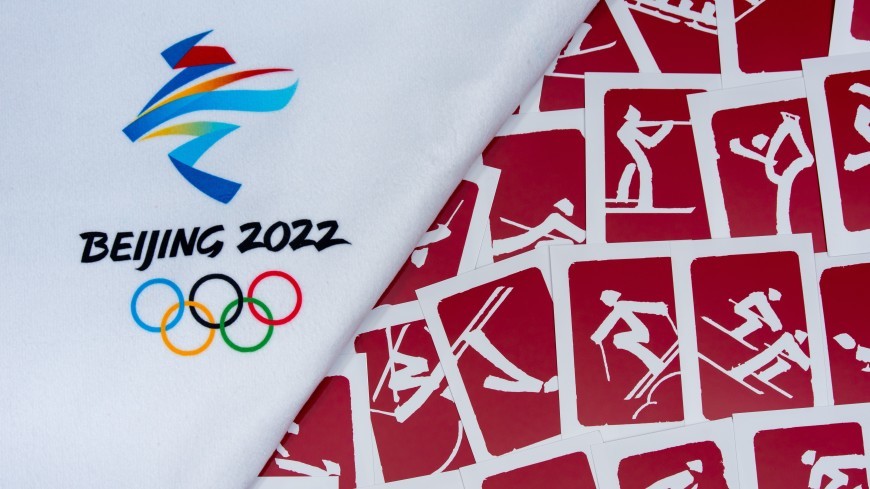
Judo sports master, silver medalist of the Russian Judo Championship Arthur Tsysar He defeated international competitions more than once, and now he trains young athletes. He notes that a person can become an Olympic champion at both 15 and 40 – it all depends on the sport and how much the age plays in it. But, of course, most athletes who have achieved at least any significant success began their career before school.
“In my sports club there is a martial arts department and a branch of rhythmic gymnastics. We have been conducting a set from the age of four, but we understand that classes of four years are more physical education for a child than a full -fledged professional training. And if you bring the child to the section in a certain direction (for example, take martial arts), then there the coach will initially prepare the child for this sport (engage in acrobatics, stretching, learn to fall correctly), ”Tsysar explains.
The current generation of children is much more susceptible to sitting lifestyle than it was, for example, 15 years ago, he notes.In addition, gadgets, adverse ecology and much more have a negative impact on children's health.
“Therefore, parents can be understood: even if they do not think about Olympic medals for their children, they understand that playing sports is needed for the full development of a child. The child is so arranged that until 6-7 years, for the proper development of the brain, he needs physical activity, since he learns to control his body, learns to be coordinated, and we, adults, must help him in this, ”says Arthur Tsysar.
According to the athlete, you need to give children to sports at an early age, if you notice that your child does not look tired at the end of the day before bedtime, falls asleep late, spends a lot of time at home, and not on the street. “Of course, the coach’s approach is very important, and most importantly – at the beginning not to repel the child’s desire to train. You, as a parent, should see how he behaves in training, if he has fun, whether it is interesting whether he is happy to fulfill the tasks of the coach and how he interacts with other children. If he likes in training, but he does not want to go to her, then here it can be in a psychological barrier in relation to a new occupation. The child can simply be afraid of unusual, although he may like to train, ”Tsysar notes.
As for the sports of high achievements, here, of course, age plays a big role: the child who began to train before will be stronger than his opponents. But there is also the reverse side of the coin, which also should not be forgotten.
“Time will pass, and those children who lost will feel power, and they will have a great desire for training, and they will begin to show the result. And those who always walked ahead will begin to understand that you need to work more and train more in order to go to the leaders. And this race is very exhausting. There are many examples when at a youthful sport the athlete showed high results and he had no equal, and he never reached the Olympic medal. To maintain motivation for sports throughout the athlete’s career is the task of coaches, ”says Arthur Tsysar.
At three years, no one is preparing future Olympic champions
Candidate of Psychological Sciences, Expert assessment of the quality of preschool education Elena Bochkina For many years, it has been working with preschool children, including with children with disabilities. She believes that parents often give children to sports for their health, but most sports sections are often aimed at completely different – in fact, these are “factories” for the production of champions.
“Many parents associate sports, primarily with the strengthening of the body, the formation of strong -willed qualities and the ability to work in a team. But, unfortunately, most sports sections are aimed at achieving a certain result, which has the slightest attitude to health promotion.The age bar for a modern athlete is rapidly reduced, and if earlier it was taken to sports sections from 6-7 years, now the age of admission begins at three years. A three -year -old baby will be happy to take an acrobatics, swimming, swimming or kickboxing, a child will be accepted for rhythmic gymnastics, in equestrian sport or athletics, who is four years old (for some young talents they make an exception and take from three years old). Most sports elements performed by young athletes are not only difficult, but also dangerous, but due to age and natural plasticity, children do not notice and do not realize this. For a coach, this is a big plus, as it helps to “blind” a person from the child, which easily obeys and meets sports criteria and requirements, ”says Bochkina.
Before giving a child to a particular sports section, it must be borne in mind that up to six years for children the only correct form of learning is the game, she adds. “During the game, young children grasp the necessary sports elements faster. But modern children's sports sections believe that they are not a kindergarten and are aimed at achieving a result, but their slogan: faster, higher, stronger. This approach to someone can help to rise to the Olympic pedestal, as it stimulates the development of leadership qualities, determination and natural inclinations, and someone will cause a heavy blow to health and nervous system due to the fact that the child may not fit this sport ( There is no necessary coordination, reaction rate or plasticity), diets and increased loads provoke rapid fatigue and exposure to the body with seasonal diseases, and strict discipline suppresses individuality, ”the psychologist notes.
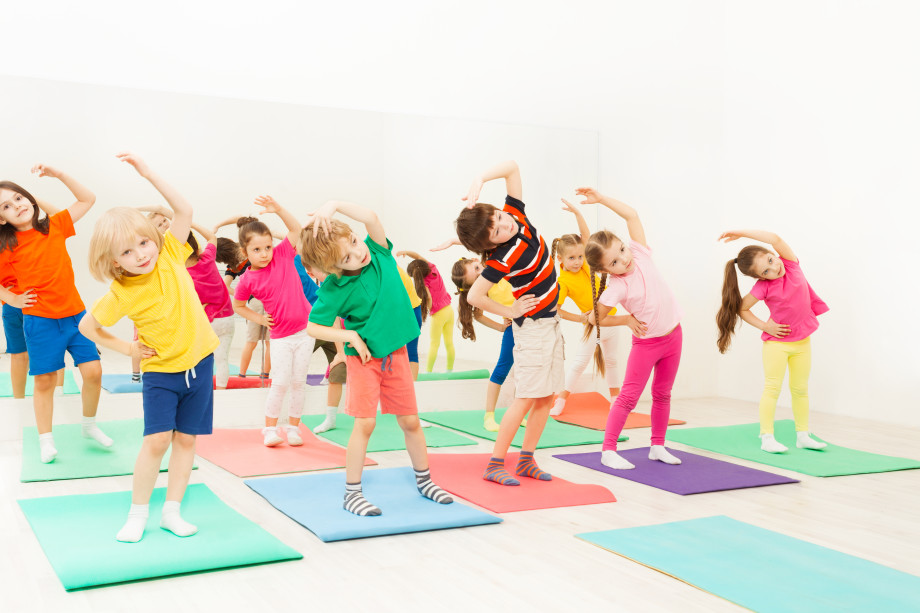
SHUTTERSTOCK/FOTODOM
Elena Bochkina gives her arguments both in favor and against early sports, but the final decision, of course, is behind the child and his parents.
To the main advantages of early sports can be attributed:
- teamwork skills;
- determination;
- The early start of sports can lead to great sports successes in the future;
- Development of natural inclinations.
The main disadvantages include:
- suppression of individuality;
- frequent physical injuries;
- High psychological stress.
Before giving a child to professional sport, be sure to visit a neurologist, orthopedist and pediatrician in order to identify the presence or absence of contraindications for a particular sport and determine the strengths of the child (good coordination, plasticity, endurance, etc.) . And be sure to listen to the opinion of your child, who can tell you whether he likes to engage in this sport or not, and why, Bochkina calls.
Vice-President of the Freestyle Wrestling Federation of St. Petersburg, Master of Sports of the USSR in freestyle wrestling Ruslan Agaragimov also advises to consult with specialists before running to a sports store and feverishly buying sports ammunition and equipment for your child.
“An important role is also played by the desire of the child himself: if a little girl enthusiastically watches figure skating on TV and tries to repeat the elements at home, she should be shown to an expert – perhaps you have little Irina Rodnina growing up, who really wants skates from Santa Claus. Many parents cannot cope with the hyperactivity of their boys, regularly receiving complaints from the kindergarten or school. This is a good reason to send the child to the sports section of boxing or freestyle wrestling, because there they will teach not only the ability to stand up for themselves and loved ones, but also discipline, as well as respect for the world around them,” Agaragimov notes.
Of course, no one prepares future Olympic champions at the age of 3-4, because at this age the child's musculoskeletal system is not yet developed for serious physical exertion, says the master of sports.
“However, at this time, the maximum involvement of children in the world of sports takes place, certain physical and psychological moments are revealed, which later allow the coach to work optimally with the student, obtain the most complete information about his potential abilities, competently prepare for physical activity. Nevertheless, you need to clearly understand what age is suitable for early sports. As a rule, girls are brought to the rhythmic gymnastics section at the age of 3-5 years. As for the traditional sports for boys (boxing, wrestling, etc.), here the optimal age of the child is 10-12 years. At the same time, of course, you should not bring a boy to classes who gravitates more towards a calm lifestyle. He must be active: run, jump, swim in the pool and so on. The guys themselves should show interest in activities of this kind, in no case should they be forced, ”says Agaragimov.
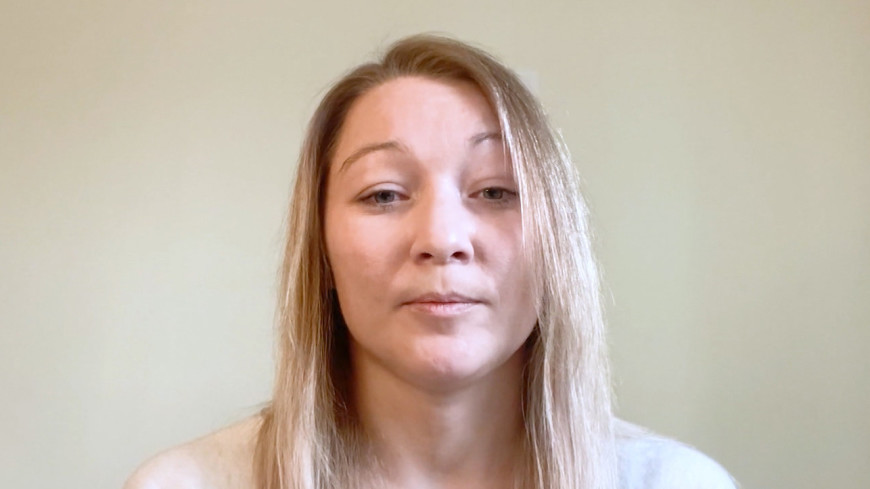
Sport is always a certain risk. But, if you correctly approach the choice of section, you can avoid many mistakes and unnecessary injuries. To begin with, parents should forget about their ambitions and still consult with a specialist. If the decision is made in favor of certain sports activities, one should not be guided only by the proximity of the sports school to the house. It is necessary to study all the reviews about various sections in different parts of the city, meet with the trainer, make sure that he has a license and experience working with children, and only after that bring the child to a trial lesson.
“It is believed that you need to learn from the mistakes of others, and so sports are an exception: here they learn from their own, so injuries, unfortunately, are possible.But with a competent choice of the section and coach, the child will learn to cope not only with them, but also with many life difficulties in the future. Sports from early childhood are certainly good, but provided that the child is not temporary, but constant interest, makes certain successes and that parents, together with the coach, take an active part in his life, ”says Ruslan Agaragimov.
Another important point, he considers the availability of sports. According to the coach, children's sport should be free or at least not beating a pocket. “I would not advise you to choose a section where parents need to pay for everything – for training, sports ammunition, exits to competitions, etc. Although the choice here, unfortunately, is small: today there is a vicious practice in which children from wealthy families receive any, including sports education, easily, and ordinary guys, who are often very talented and promising in terms of sports achievements, remains, which is called what is called , on the bench. Of course, these issues should be resolved by the state, Ministry of Education and the Ministry of Sports, but so far children's sports will not be available for everyone, development in this regard should not be expected, ”concludes Agaragimov.

